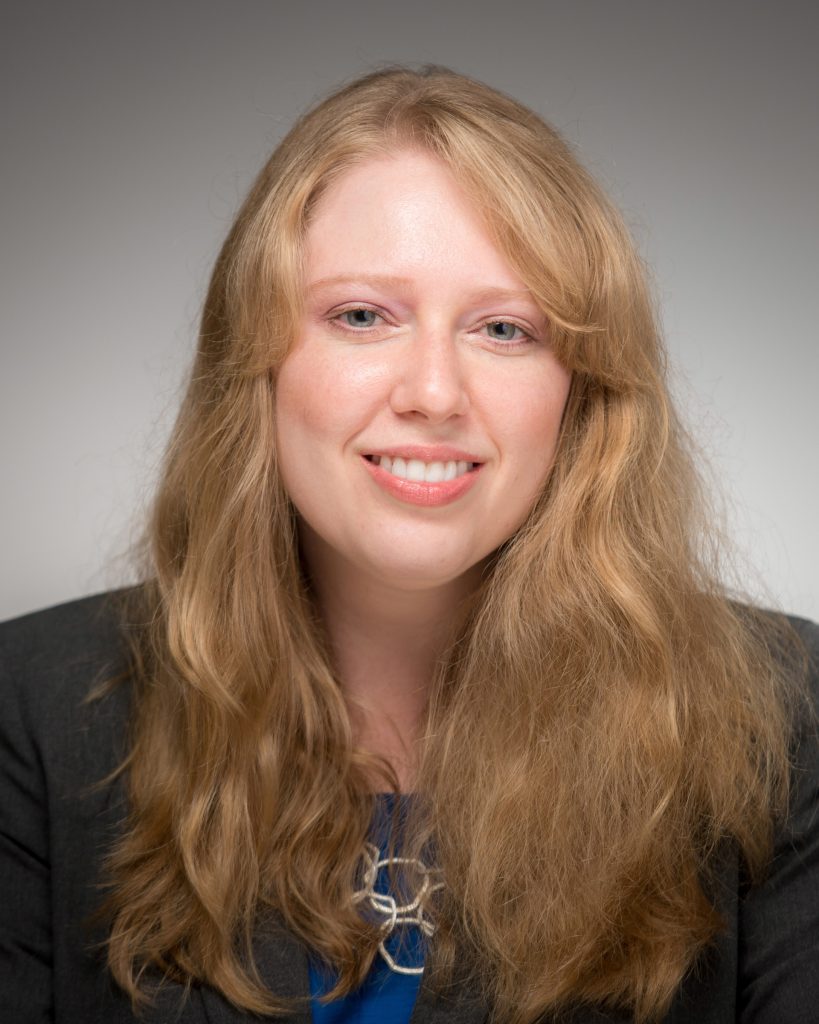
Melissa Miller received her PhD from Slavic Studies (with a minor in Second Language Acquisition) in 2016. Her dissertation was titled Anton Chekhov and the Modernization of Sexuality in Late Imperial Russia. She taught at Gustavus Adolphus College, Macalester College, and the University of Notre Dame before beginning a tenure-track Assistant Professor position this fall at Colby College in Maine.
Congratulations on the position at Colby! What are you teaching there and how do you see your role in Russian Studies at a small liberal-arts college?
Thank you! This semester I am teaching Beginning Russian and Women in Russian Literature and Culture. Next semester, I will be teaching Beginning and Intermediate Russian, along with a first-year writing seminar on the Slavic Vampire. As a faculty member at a small liberal arts college, I have to be able to do a bit of everything; this includes teaching all levels of language and cross-listed culture courses in English. It also means I am responsible for raising the campus profile of Russian Studies through organizing film showings, concerts, trips, and guest talks, as well as involving my students in museum exhibitions and Special Collections. More broadly, our program provides a space for a robust Post-Soviet dialogue, since Colby is now home to students from Armenia, Kazakhstan, Ukraine, Uzbekistan, and other countries where Russian is spoken, and we strive to include these perspectives, as well.
You wrote your dissertation on Chekhov, but now your research work is at the intersection of Medical Humanities and Russian Studies. How did that shift come about, and what research projects are on the horizon for you?
The shift actually began to happen when I was writing the dissertation itself. My research demonstrated that, most often when Chekhov is taught in North America, it is in the context of medical and health sciences education, not in Slavic or Russian Studies departments. This fact convinced me that there are greater cross-disciplinary conversations that Slavic Studies specialists can be and should be contributing to. In addition to several articles coming out in the next few years on Chekhov, as well as on creative explorations of pregnancy and other female health events, I am now shifting my attention to my book, which will be on the figure of the midwife in Russian literature and culture and what midwives can tell us about the politics of storytelling.
You are much missed in Madison. Is there something you’d like to share with us that you miss about the city and/or about your experience as a graduate student in Slavic Studies?
And I really miss Madison! It is hard to imagine that I will ever again live in a place that offers as much on such a convenient scale. I think what has played the biggest role in the development of my career is the intellectual community that the program at UW-Madison fostered. Even though we no longer share the same geographical area, UW-Madison professors and colleagues from graduate school never hesitate to make themselves available to help with any pedagogical or research question. It is not an exaggeration to say that I would not be successful without them.
Do you have any advice for current grad students who are on—or will soon go on—the academic job market?
I would advise current students to make the most of every opportunity that UW-Madison provides for its graduate students: go to as many lectures and apply for funding for as many conferences as you can. Make use of the libraries, museums, and other resources that UW-Madison offers in both your research and your teaching. Get practice applying for campus grants and organizing events. Relatively speaking, Russian programs tend to be small; this goes for both research institutions and small liberal arts colleges. Working in a Russian program means that you are in charge of creating meaningful opportunities for your program and your students, so the more practice you can get in innovative program-building, the better. Starting early also gives you experience balancing these responsibilities alongside your research, which is key because Russian Studies is still primarily a book field, so even a small liberal arts college often requires a monograph and several articles in order to earn tenure.